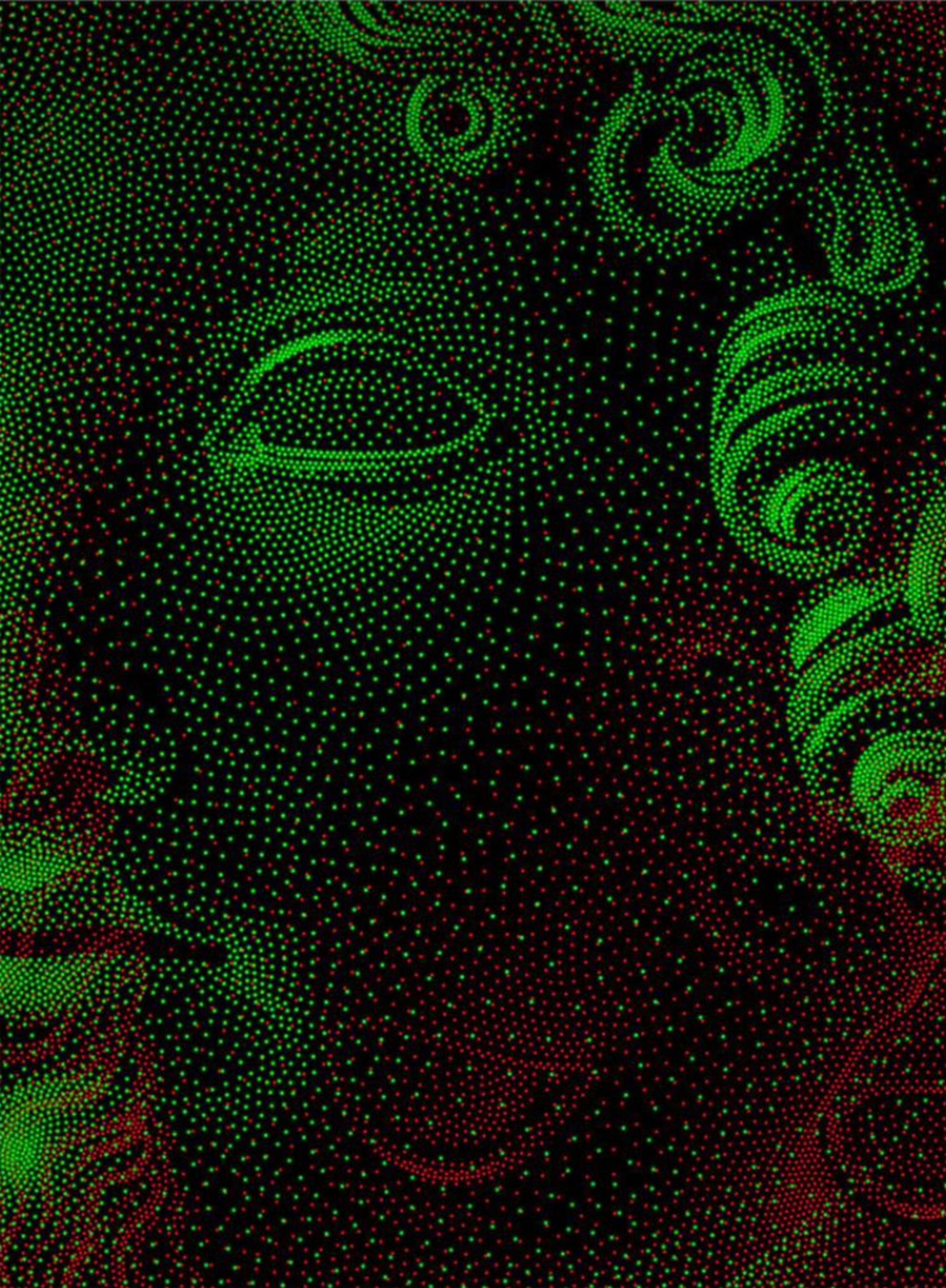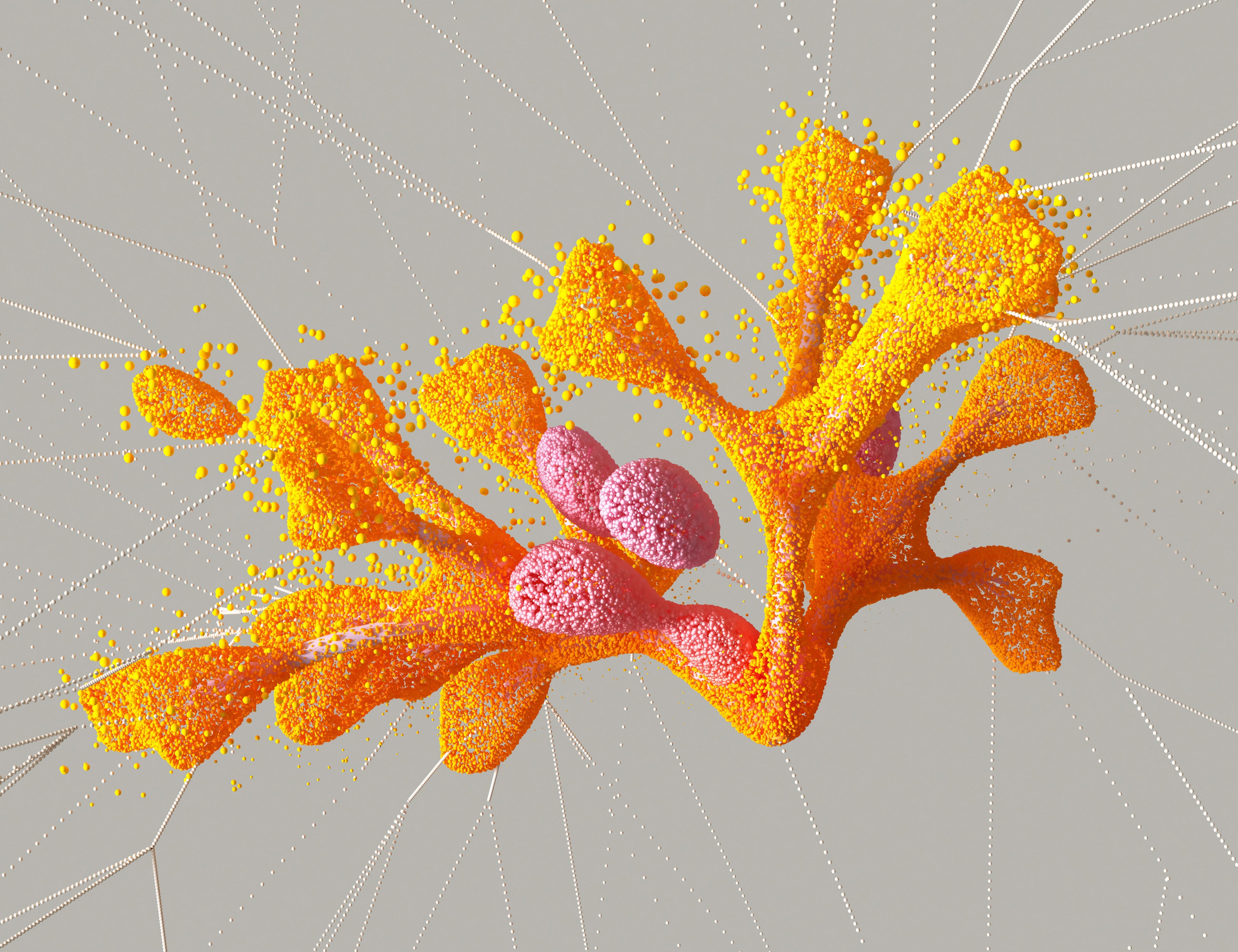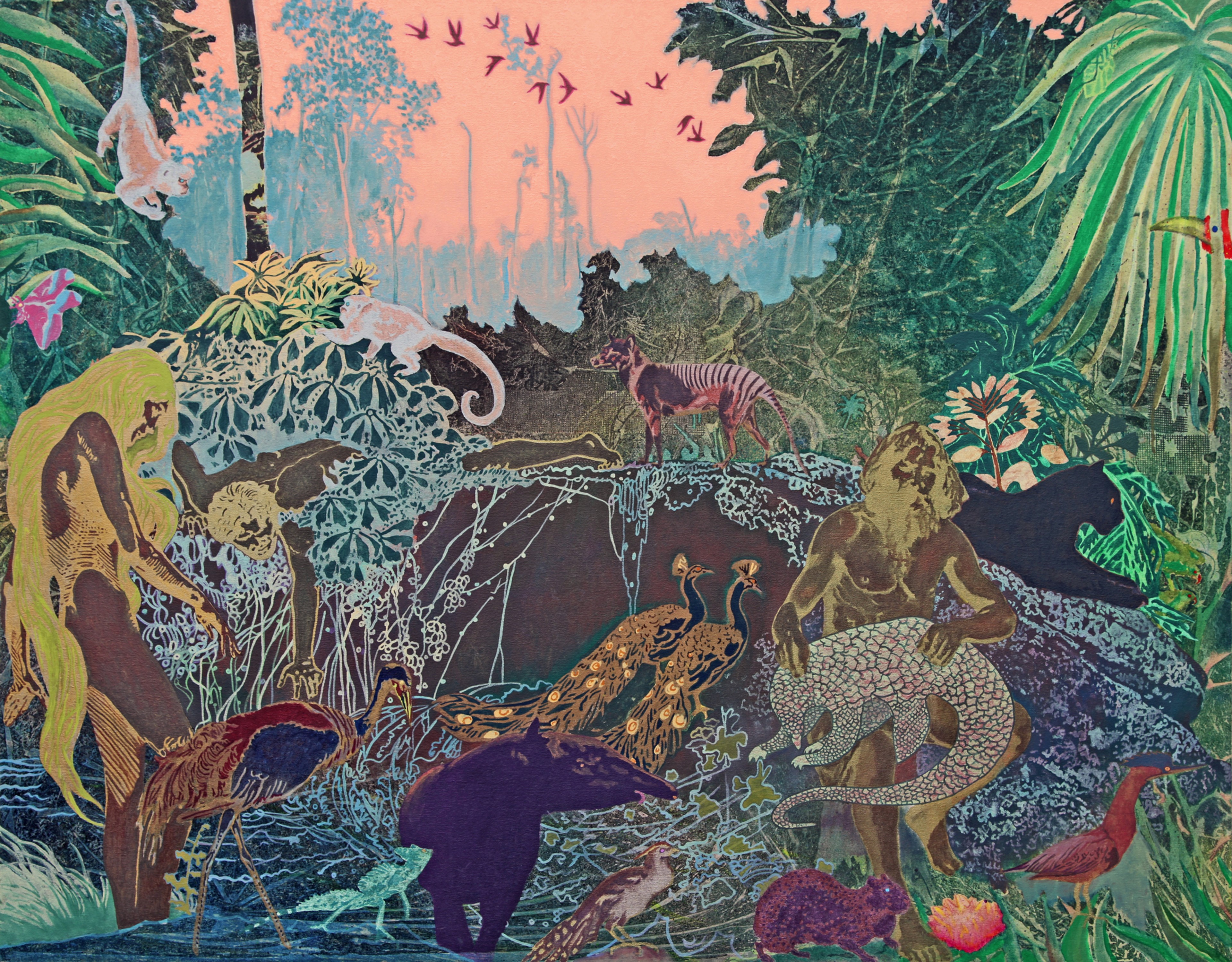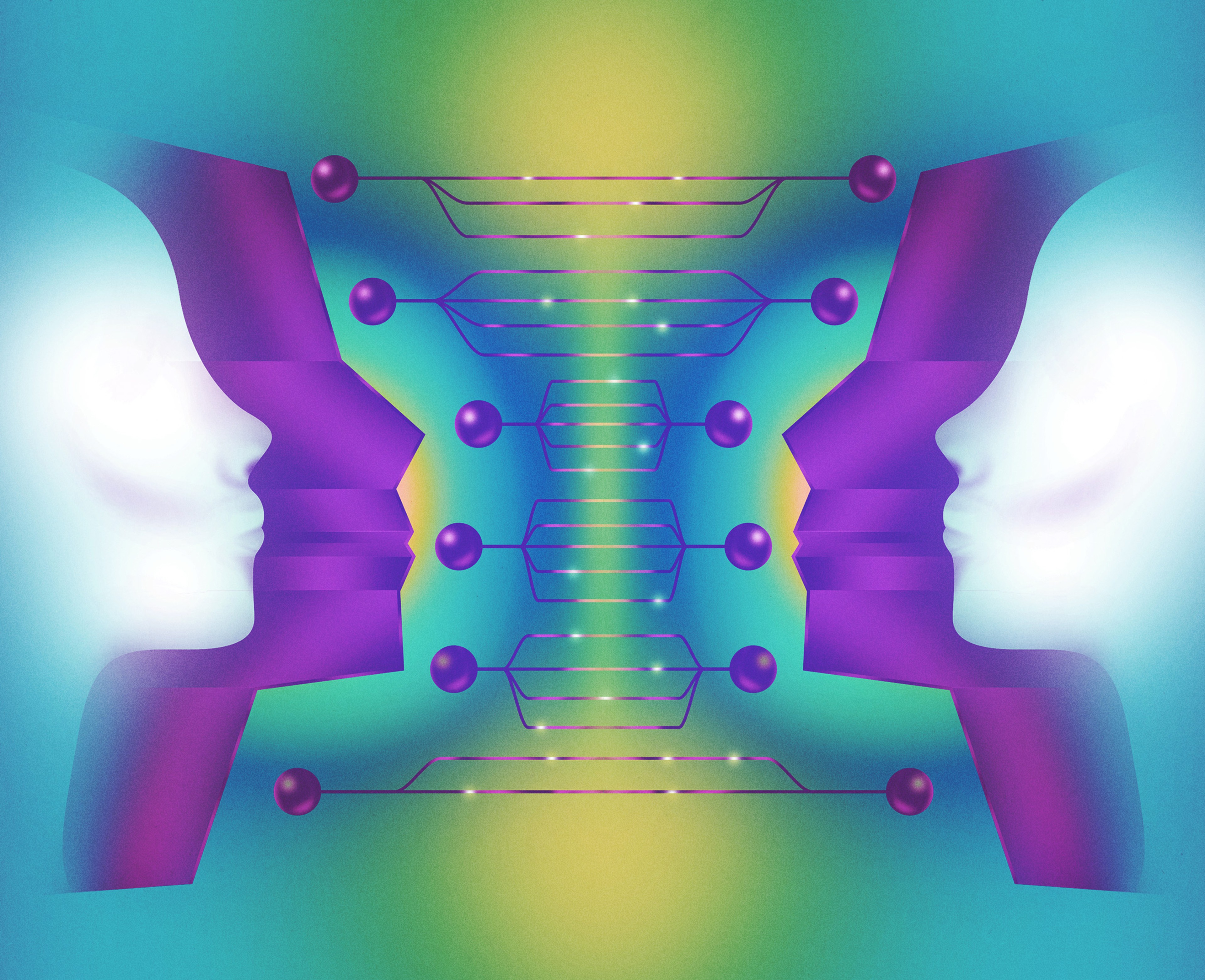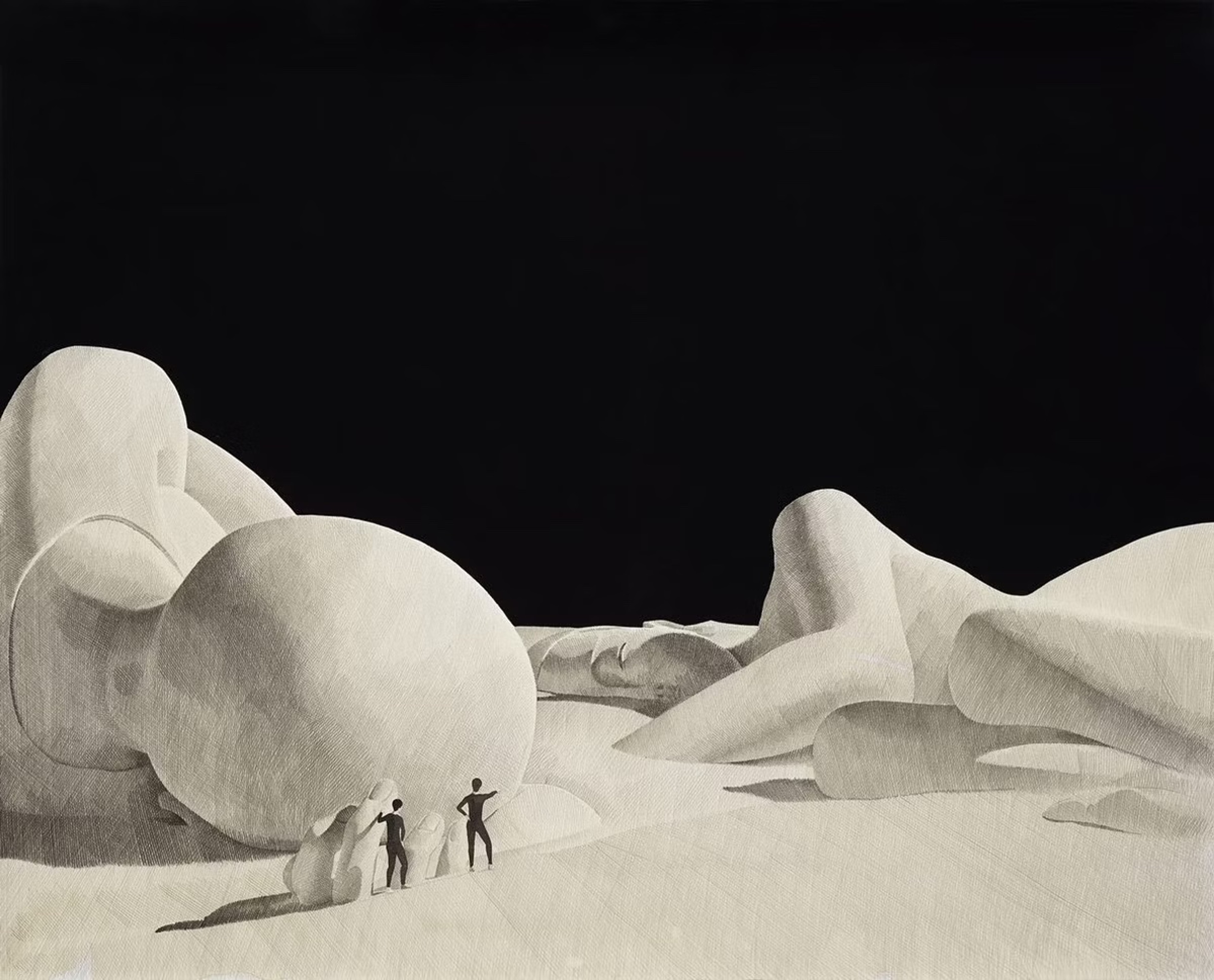Future Technê I
In ancient Greek, the term “technê” described both theoretical knowledge and craft practices. This invocation anchors the Salon Series, joining the Berggruen Institute’s research on technoscientific, philosophical, and planetary phenomena with Los Angeles’ creative community.
Launched in Spring 2023, Salons illuminate questions of embodiment, cognition, creativity, and more-than-human ways of being. Featured guests of the Series — artists, designers, architects, filmmakers, writers, and technologists — propose “future technê,” their creative contribution for a better world.
“Against the backdrop of an evolving biosphere, augmented / artificial information landscapes, and shifting social contracts due to ever changing political/economic systems,” Webb and Brockett explain, “collecting ‘future technês prompts partial answers to pressing questions of our time.”
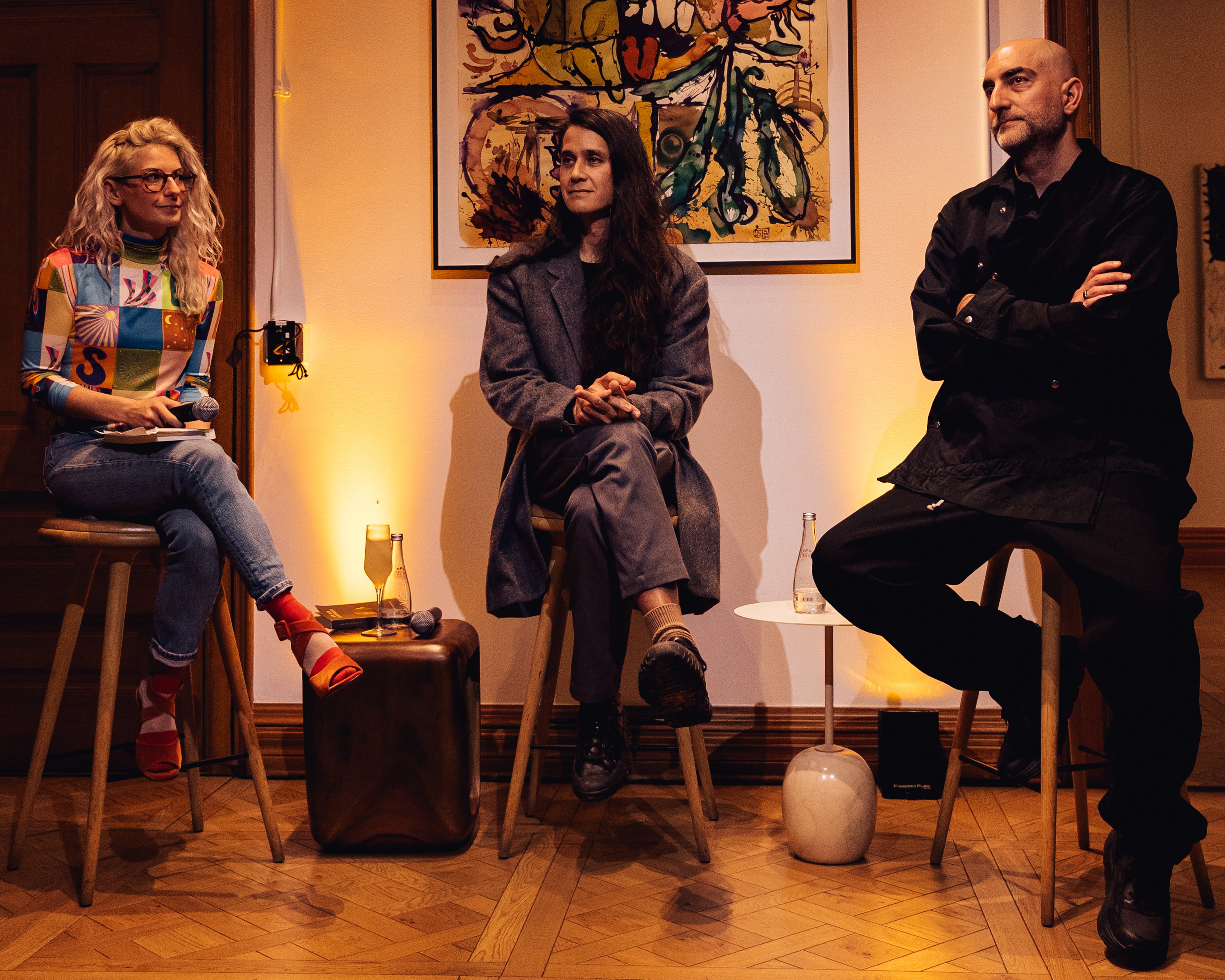
K. Allado-Mcdowell’s Air Age Blueprint, co-written with ChatGPT, explores the mixture of ancient healing traditions with computational technologies, creating portals to a new kind of techno-mysticism.
In an improvisational performance in the echoic Bradbury Building’s atrium, musical artist Armen Nalbandian on piano accompanied Allado-Mcdowell on gong, backdropping a reading from Air Age Blueprint. The discussion that followed touched on the dislocation of authorship with computational collaborators, AI-human creativity, and alternate cognitive states.
K. Allado-Mcdowell
“My Future Technê is the recognition of nonhuman life through a cybernetic animism based on botano-psycho-pharmaco-cosmonosis for the creation of gift economies through the bio-cratic planet.”
Armen Nalbandian
“My Future Technê begins with the awareness that what is the future is also of the past and that techne, which gave rise to technique, is the awareness of the failures within development.
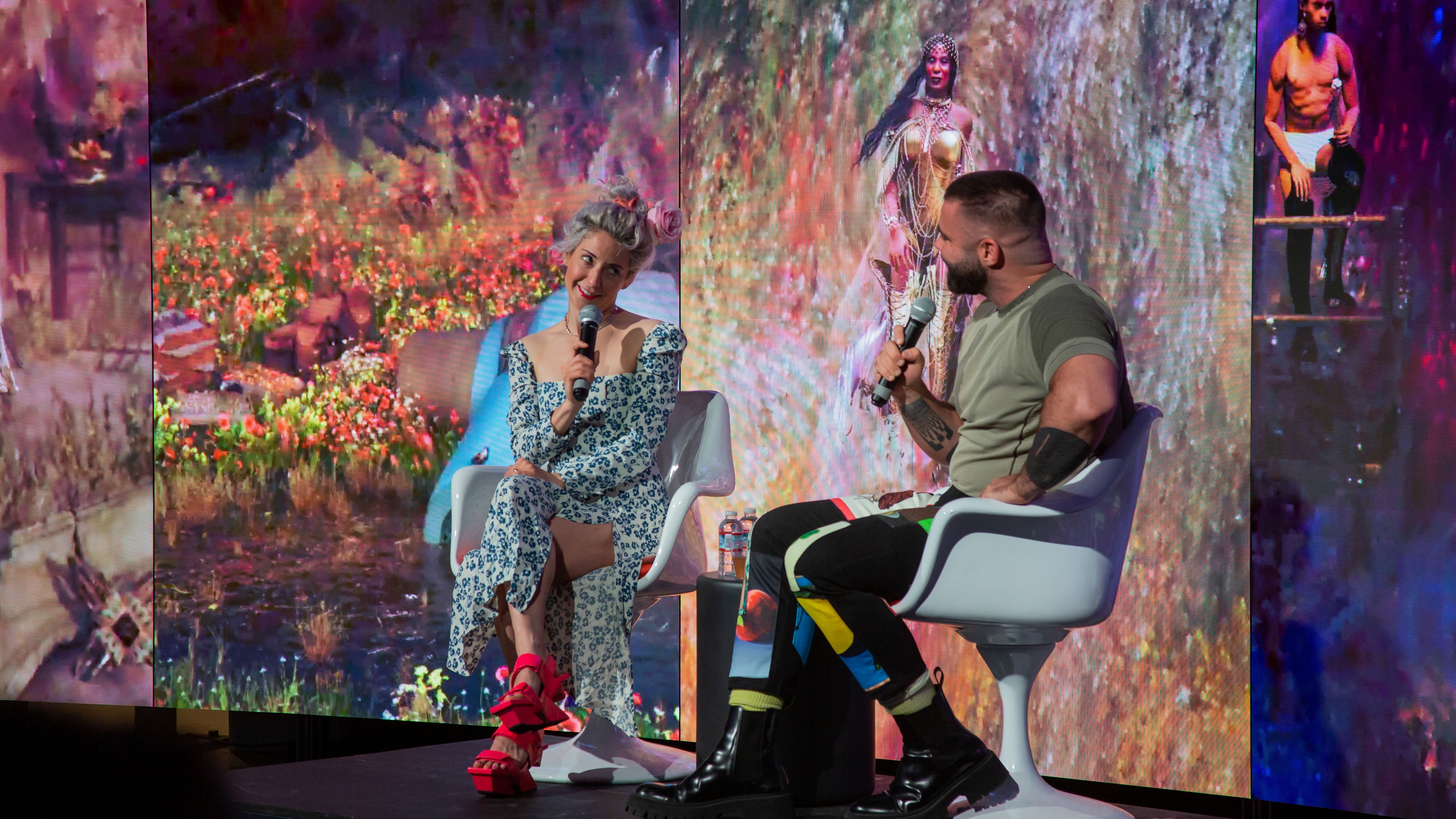
Why do we need new gods? Spanish-American new media artist Enrique Agudo considers that question through Ipseity, an installation of eight digital paintings that depict new deities and their environments. Inspired by the Pre-Raphaelites, a group of late 19th century British painters who favored vivid colors and granular details, Agudo’s allegorical scenes explore humans’ relationship to technology through digital painting.
Enrique Agudo
“My Future Technê is a technology that is expansive of human identity and not reductive that allows all people of all creeds, races, sexual ties, and identities to be included.”
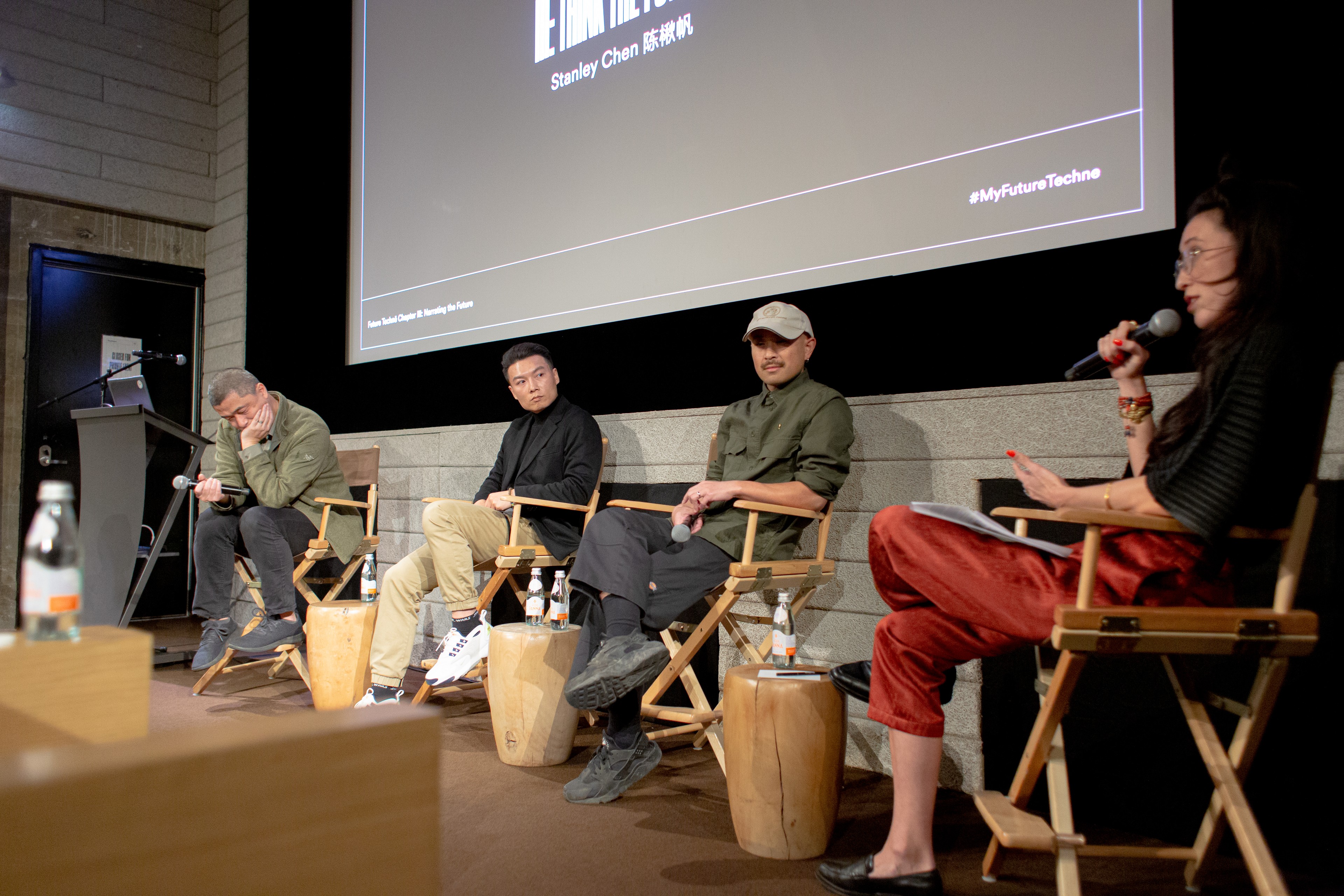
In celebration of Asian Pacific American Heritage Month, NeueHouse Hollywood hosted a multimedia presentation, “Narrating the Future” in a series of Chapters that meditated on how storytelling through visual media, oral tradition, and written stories carries on cultural traditions and offers up new ones. “Technology is a language,” Brockett claimed in her welcome address. “It can reinvent fictions that color our collective unconsciousness. It can twist stories that we've told ourselves in the past in the hopes of reimagining new narratives that allow us to understand ourselves and each other in the future.”
Writer-director Andrew Thomas Huang crafts hybrid fantasy worlds and mythical dreamscapes and presented work from Immortal Hybrid that explored “the idea of ancestry as a technology.” A winner of the Nebula, Hugo, and World Fantasy award, author Ken Liu explained why “SciFi Writers are Bad at Imagining the Future.” In response, Chinese speculative fiction author Stanley Chen read from his debut novel Waste Tide, set in the near-future China that is haunted by electronic waste. Zandie Brockett tied strands of these presentations together in an Epilogue, synthesizing common themes of queering conceptions of time.
